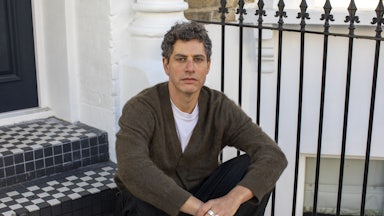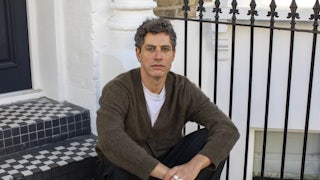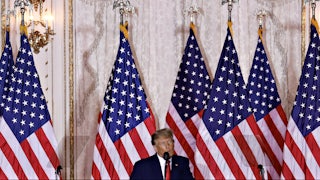At 1,308 feet above sea level, Chautauqua Lake in upstate New York is one of America’s highest navigable lakes, whose waters drain through a series of rivers before ending up in the Mississippi and flowing into the Gulf of Mexico. On its western shore sits the Chautauqua Institution—the august intellectual colony, and de facto HQ of the Chautauqua intellectual movement, which Teddy Roosevelt once called “the most American thing in America.”
In its long history, Chautauquans, as the institute’s participants refer to themselves, have shaped public attitudes on everything from woman’s suffrage to the prosecution of global human rights violators. Once a roving extravaganza of discussion, debate, and prayer, it has settled into an annual summerlong confab of concerts, conferences, and lectures. It has hosted everyone from Susan B. Anthony to Ulysses S. Grant, John Philip Sousa, Ella Fitzgerald, and, more recently, Gen. David Petraeus, New York Times columnist David Brooks, and comedian/automobile enthusiast Jay Leno. It was at Chautauqua in 1936 that FDR first delivered his “I Hate War” speech, which aimed to sway the “body of public opinion in this country” against the allure of war profiteering.
Like the namesake lake abutting the grounds, the Chautauqua Institution’s intellectual headwaters are also meant to trickle down to the rest of the country, feeding the broader currents of U.S. political and social life. But recently a contingent of longtime conservative-leaning Chautauquans has broken with the institution, alleging that it has given up values of freedom of speech for the bogeyman of the modern elite: “wokeness.” This rival group now hosts counterprogramming of the supposedly “canceled.” Their calendar counts a motley crew of conspiracists, cranks, ivermectin boosters, 2020 election truthers, and even a Thomas Jefferson impersonator, who delivered a speech on the Bill of Rights in full period costume.
The main institution found itself at the center of international conversations about human rights and free speech in August, when novelist Salman Rushdie was violently stabbed by a religious extremist as he began an interview under the canopy of Chautauqua’s 4,000-seat amphitheater. The Rushdie attack seemed like a rare, terrorizing instance of the outside world crashing the gates. Telling people that I was visiting the Chautauqua Institution this summer, where my partner was invited to deliver a lecture on evolving trends in folk music, I was typically met with blank stares. “That place where Salman Rushdie was stabbed,” I’d clarify. Then a faint flicker of recognition. “Oh! Right, right….”
In the prior few sleepy decades, the Chautauqua Institution had adopted cozy, self-contained eminence. Its well-manicured grounds are lined with stately manors and meeting halls in the Queen Anne, Romanesque, and Second Empire styles. There’s also an open-air Doric temple dubbed “the Hall of Philosophy.” It has its own bookstore, bougie dining hall, pubs, 36-hole golf course—even an on-site Starbucks. Demographics skew white, and wealthy. (This last season’s adult pass to the institution ran $2,559, which does not include room and board.) It attracts the sorts of people who use “summer” as a verb. Gray-hairs in tennis outfits abound.
Driving to the grounds from my home in Philadelphia—a route that takes you through the poorest, most desolate regions of rural Pennsylvania—and arriving at its gilded gates is a road trip through America’s wonky wealth distribution. The acreage itself had what one guest described to me as “Get Out vibes.” The Chautauqua Institution feels, for better and worse, like cottage country for denizens of the idealized “city on a hill.” It’s a shimmering beacon of exceptionalism and hope—for those who can afford entry. And like many modern, cloistered U.S. institutions, it’s become consumed by internecine battles, ones that might not reveal much about the state of politics in the country, but, for the elites at the center, ones that feel as if they carry the utmost importance.
During the few days I spent ambling around its grounds, The Wall Street Journal published an op-ed levying that most damning, contemporary charge: Chautauqua had gone “woke.” Columnist Jason L. Riley of the Journal’s editorial board outlined an upheaval, citing “dozens of Chautauquans” protesting the resort’s “lack of ideological diversity” and its sinister shadow-ban on conservative speakers. Those behind the grumbling have formed Advocates for Balance at Chautauqua (ABC), which Riley described as a “splinter group” that consists of hundreds. They host their own events on the grounds, without the institution’s oversight or approval of speakers.
The schism emerged in 2018, led by longtime Chautauquan Paul Anthony, a D.C.-based broadcaster who has been summering at the resort since 1980. When I initially reached him, on holiday in Paris, Anthony seemed eager to chat about the group, and its aims. After a few emails back and forth, he finally declined comment, referring me to group’s website.
Its online “ABC Bookshelf” is illuminating. It includes titles by Candace Owens and Tucker Carlson. ABC’s mission statement suggests the sorts of beliefs that are common among a certain class of conservative gripers nowadays: a belief that the calls for diversity and inclusion do not account for “thought diversity,” and a belief that every issue has precisely two sides, only one of which is being represented by Chautauqua’s official programming. Among ABC’s invited speakers have been The Federalist’s editor in chief, Mollie Hemingway; John Droz Jr., a retiree who runs an anti–wind turbine activist group, and whose speech was billed as a debunking of the media’s fact-checking of Trump’s election denial; right-wing radio host Hugh Hewitt; and John Lott, a former Trump Justice Department official with an extensive history of peddling disproved pro-gun research. Copping the contemporary language of social inclusion, ABC presents itself as a safe space for conservative-minded Chautauquans who are “marginalized and made to feel unwelcome.”
“I think it’s emblematic of just how polarized the country is right now, and down to the community level,” said Matt Ewalt, Chautauqua’s vice president and chair for education. Ewalt handles programming and said he had worked with ABC and welcomed several of their suggested speakers, including former Claremont Institute president Larry P. Arnn, Liberal Fascism author Jonah Goldberg, and Linda Chavez, a Fox News commentator who served in the Ronald Reagan and George H.W. Bush administrations. On the night I left the institution, the musical guests were the Beach Boys, now fronted by Mike Love, who has gigged at Mar-a-Lago New Year’s parties.
While Ewalt stressed that he’s “deeply proud and honored” to host such prominent conservative voices at Chautauqua, the administration is under no obligation to heed every ABC suggestion. “We’re trying not to get drawn into political polarization,” he said, “in which extreme views are not only the loudest, but dominate the discourse.” When asked exactly how the institution defines the parameters around who gets to speak, and who doesn’t, Ewalt prevaricated, citing vague values of diversity, dignity, and difference. But key to any worthy Chautauqua lecturer is their ability to, as he put it, “engage in good faith.”
Some of ABC’s recent guests certainly hold views that land outside mainstream acceptability. And their very inclusion can seem itself like an act of nose-thumbing bad faith. In July, the splinter group welcomed syndicated parenting columnist John Rosemond, author of the 1994 child-rearing handbook To Spank or Not to Spank, which offers guidelines on how to “spank strategically.” (In 1975, the American Psychological Association passed an official resolution opposing corporal punishment as a form of disciplining children.) He’s also suggested that attention deficit hyperactivity disorder “does not exist.” As he proclaimed during his ABC speech, “My licensing board … has since come after my license three times!”
“I think that the original Chautauqua Institution is bringing in speakers that represent and appeal to people who watch MSNBC, and CNN,” Rosemond told me. “ABC represents what I consider to be a broader perspective, a more accurate perspective, a more interesting perspective.” During our interview, he praised the splinter group as Chautauqua’s “rebel stepchild,” while railing against “wokeism,” which he defines as the “logical expression of postmodernity.”
One might naturally wonder how a speaker holding views widely discredited by the major governing bodies of their profession is meaningfully contributing to “thought diversity.” Would ABC welcome a flat-earther simply because their ideas were unorthodox? A Ptolemaic astronomer? Someone who believes that Temple of Doom is the best of the Indiana Jones movies? Does heresy alone merit inclusion at a serious intellectual retreat?
For Paul Kengor, another recent ABC invitee, such divisive programming is a refreshing break from tradition. A professor of political science whose latest book examines “the demonic inspiration of Karl Marx,” Kengor cites a Chautauquan who praised his lecture as a reprieve from the “boring platitudes” issued from the institution’s main stage. “When you’re in a place of ideas,” said Kengor, “you have to have diversity of ideas.”
Officially, Chautauqua advertises itself as such a place of ideas, where “wisdom will be gleaned.” Historically, though, the institution has done a good job circumscribing the limits of that wisdom. “Going back to 1874 and on, the administration kept a very tight grip on everything,” said Jon Schmitz, the institution’s in-house historian. “The line was definitely drawn. Many times.” Temperance was taken for granted, and rarely debated, in Chautauqua’s early years. Until the 1970s, Chautauqua—which prides itself on being ecumenical in the multifaith and explicitly religious sense—forbade discussions of atheism. “There’s always been argument and quarreling about how the institution is run,” he said. “I don’t think that’s exactly what we’re talking about here. We’re talking about an alternative that is counter.”
Chautauqua’s officialdom keeps ABC at arm’s length. Its speakers aren’t permitted free access to the same prestigious spaces that host the regular programming. Instead, they rent meeting rooms from the institution’s hotels. One wonders why they would bother. Surely a group of like-minded individuals interested in fireside chats about authoritarian child-rearing tips, or Karl Marx’s Satanic poetry, could pay for conference space at the nearby Econo Lodge or another venue. But of course, the Chautauqua tag confers legitimacy on ABC’s intellectual program, such as it is. It’s sort of like Mike Love’s Beach Boys: the Chautauqua Institution’s conservative cousin, surfing on the intellectual legacy afforded by the name.
Such convulsions may seem like total tempest-in-a-teapot trivium. But the microcosmic quality, unfolding in this tucked-away summer resort that feels comfortably stuck in some bygone era of American idealism, illuminates grander tensions. The spirit of division and political discord may well be the point. Locking horns over matters of ideology has become the nation’s new pastime. And a sense of paranoid self-persecution looms in many corners of American life. These moods have now settled over the banks of Lake Chautauqua. In this way, the institution still serves as a bellwether for American intellectual life.
Combativeness. Stubbornness. Groups of wealthy East Coast elitists driving “grassroots” fundraising campaigns. Arguments over “wokeness” and the definition of “diversity.” Adults berating the specter of postmodernism. What, to paraphrase Teddy Roosevelt, could be more American?






